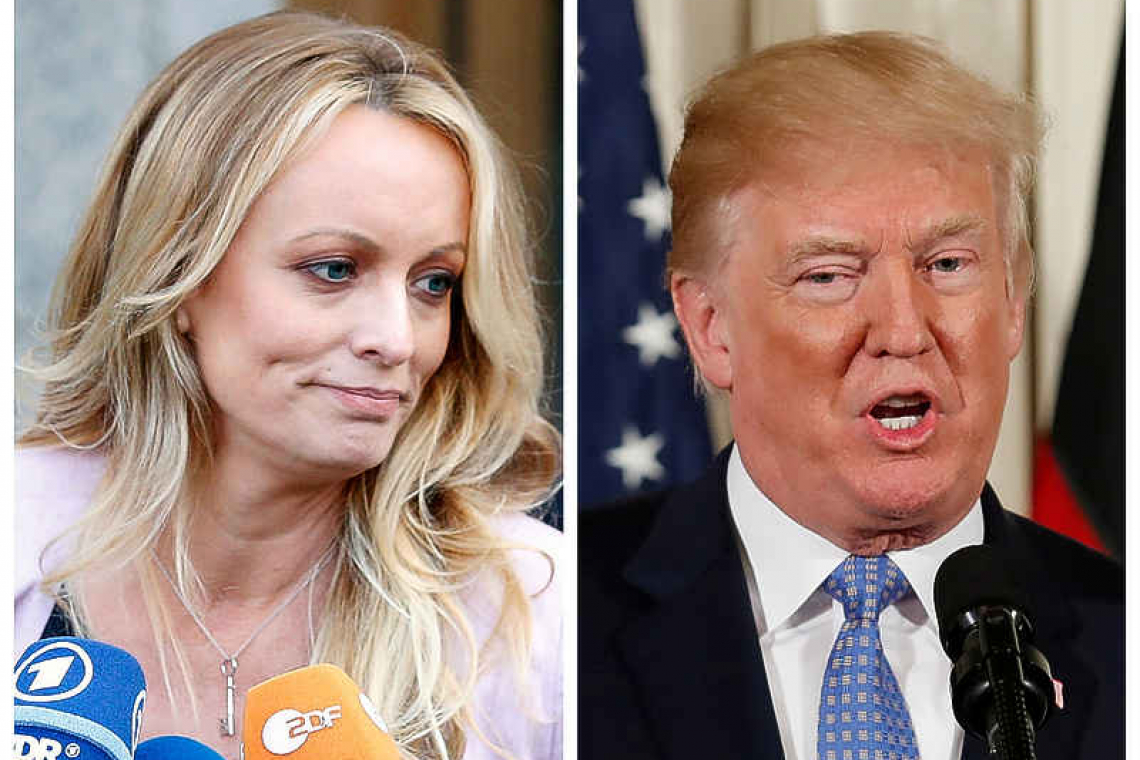WASHINGTON--The U.S. Supreme Court on Monday rejected adult film actress Stormy Daniels' bid to revive her defamation lawsuit against former President Donald Trump over a Twitter post in which he accused her of a "con job" after she described being threatened over publicizing her account of a sexual relationship with him.
In bringing the case to a close, the justices left in place lower court decisions throwing out her suit. The San Francisco-based 9th U.S. Circuit Court of Appeals last year agreed with a Los Angeles-based federal judge who decided in 2018 that Trump's remarks were not defamatory and were protected by the U.S. Constitution's First Amendment's guarantee of free speech.
"The ruling confirms what we have been saying all along: that Stormy Daniels' lawsuit against the President was frivolous and sanctionable," said Trump's lawyer, Charles Harder.
Clark Brewster, Daniels' lawyer, said he had expected the justices to take up the case because there is "confusion and uncertainty" in lower courts on the legal issue presented.
Daniels, whose real name is Stephanie Clifford, has said she had a sexual encounter with Trump at a Lake Tahoe hotel in 2006 - the year after he married his third wife Melania and more than a decade before the businessman-turned-politician became president. Trump has denied the sexual encounter.
Daniels has said that in 2011, an unknown man approached her and her infant daughter in a Las Vegas parking lot and threatened her after she had agreed to talk about her experience with Trump in a media interview. Daniels said the man "leaned around and looked at my daughter and said, 'That's a beautiful little girl. It'd be a shame if something happened to her mom.'"
In 2018, more than a year after Trump became president, she released a sketch of the man. Trump responded on Twitter to the release of the sketch, writing: "A sketch years later about a nonexistent man. A total con job, playing the Fake News Media for Fools (but they know it)!"
Daniels sued Trump in federal court claiming defamation, saying his comment conveyed his belief that she was a liar. Her lawyers have said the judge was wrong to dismiss the lawsuit under a Texas state law that allows for speedy resolution of cases that are seen to burden the right of free speech. Trump was also awarded $292,000 in legal fees and $1,000 in sanctions.
Daniels was a Texas resident when she filed the lawsuit and Trump was registered as a New York resident. The legal issue at the center of her appeal was whether such state laws can be applied in federal court when the two parties are from different states. The lawsuit was originally filed in New York but was transferred to Los Angeles, where Daniels had already sued Trump seeking to end a $130,000 hush money agreement intended to silence her over the alleged sexual encounter ahead of the 2016 election. That lawsuit was also dismissed.
Daniels formerly was represented by lawyer Michael Avenatti, who was later indicted in three separate cases on charges that he defrauded several clients including Daniels, lied to the Internal Revenue Service, and tried to extort Nike Inc. In February 2020, he was convicted in the Nike case.
Trump also faces separate defamation lawsuits related to alleged sexual assaults, both of which he denied, brought by two women - E. Jean Carroll, a former Elle magazine writer, and Summer Zervos, a 2005 contestant on his former reality TV show "The Apprentice."







